MercoPress. South Atlantic News Agency
Latin America
-
Thursday, October 31st 2013 - 15:31 UTC
Brazil commemorates 25 years of the post-dictatorship constitution
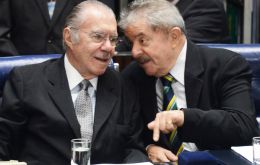
Four former Brazilian presidents Jose Sarney, Fernando Color de Mello, Fernando Henrique Cardoso and Lula da Silva were honored at a ceremony in the Senate to commemorate the 25 years of the 1988 constitution.
-
Thursday, October 31st 2013 - 03:49 UTC
Greater ports congestion forecasted in Brazil with record soy crop and delayed sugar shipments
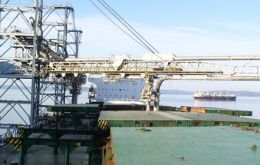
Brazil’s delays loading soybeans for export may worsen in 2014 due to a bigger crop and as some grain facilities are used for sugar shipments, crop analyst Soybean & Corn Advisor Inc. said.
-
Wednesday, October 30th 2013 - 22:13 UTC
With help from her rival, Chile's Bachelet poised to win presidential election in the first round
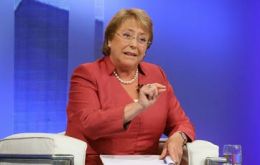
Former president Michelle Bachelet holds a huge lead in Chile’s presidential election this year and may attract enough support to win outright in the first round, a key poll showed this week. An estimated 47% of Chileans surveyed by pollster CEP said they would vote for Bachelet if the election were held this Sunday, while 14% backed right-wing candidate Evelyn Matthei and 10% supported independent economist Franco Parisi.
-
Wednesday, October 30th 2013 - 21:45 UTC
Latam and Caribbean weather global slowdown: unemployment forecasted to end this year at 6.3%
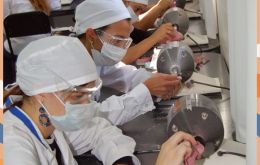
Latin American and the Caribbean are forecasted to end 2013 with an urban unemployment rate of between 6.2% and 6.3%, slightly lower than 6.4% recorded in 2012, according to the latest estimates from the Economic Commission for Latin America and the Caribbean (ECLAC) and the International Labor Organization (ILO).
-
Wednesday, October 30th 2013 - 21:26 UTC
Cartes and Rousseff confirm Mercosur with inauguration of 500 KW power plant and transmission line
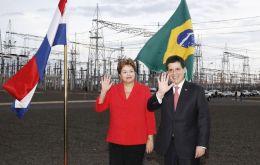
Paraguayan president Horacio Cartes and his peer from Brazil Dilma Rousseff inaugurated on Tuesday a 500KW power plant and line from the Itaipú hydroelectric dam to the city of Asunción which should help end endemic blackouts and supply a new industrial park.
-
Wednesday, October 30th 2013 - 07:45 UTC
Clarin loses constitutional battle, but Argentine government ordered to treat all media equally
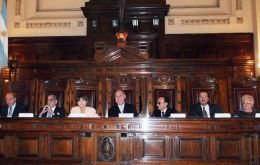
The Argentine Supreme Court on Tuesday after four years of litigation finally declared the constitutionality of the Broadcast Media Law, effective immediately, and which forces the powerful Clarin media consortium to comply with the antimonopoly legislation and sell off many of its operating licenses.
-
Wednesday, October 30th 2013 - 07:40 UTC
Pacific Alliance well ahead of Mercosur in the “Doing Business 2014” report
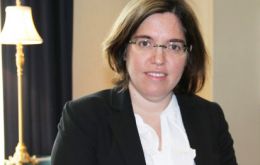
The World Bank's “Doing business 2014” report is not very encouraging for Latin-America with Chile the best ranked in position 34 out of 189 economies surveyed, but the group of countries that make up the Pacific Alliance again figures well ahead of Mercosur.
-
Wednesday, October 30th 2013 - 07:33 UTC
Botnia/UPM conflict: Argentina retaliates against Uruguay with trade and port measures
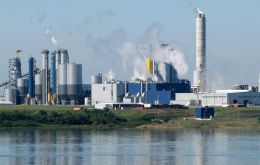
Argentina has made public its first retaliation against Uruguay over the Botnia/UPM pulp mill controversy and has banned Argentine exports from being trucked to Montevideo for shipment overseas. The resolution was published Tuesday in the Official Gazette and invokes maritime transport agreements in the framework of Mercosur.
-
Wednesday, October 30th 2013 - 07:29 UTC
Argentina expands political relationship and cooperation with the Caribbean
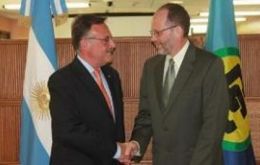
Argentina pledged to strengthen its relationship with the Caribbean Community (Caricom) saying that it was also looking to develop new areas of integration with the Caribbean under the paradigm of south-south cooperation, reports the Jamaica Observer from Georgetown Guyana.
-
Wednesday, October 30th 2013 - 07:22 UTC
In a further step to normalize relations Paraguay names new ambassador to Venezuela
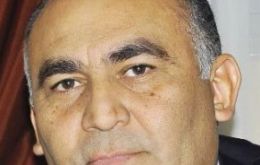
Paraguay has named veteran diplomat Enrique Jara as new ambassador in Venezuela, giving a further step towards the full normalization of relations that had been interrupted since July 2012 when the two countries expelled their respective accredited staff.
